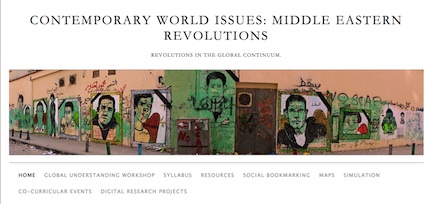We are pleased to announce the Innovation Fellowship and Global Innovation Fellowship recipients for 2016-2017. This fellowship supports faculty with the resources and expertise needed to experiment with the pedagogy in a course. We consider this fellowship a marker of significant potential and achievement; these fellows are not only pursuing valuable pedagogical innovation but also are contributing in significant ways to the university’s mission and goals. Please join us in congratulating the 2016-2017 fellows:
Shannon Baley, Visiting Assistant Professor, University Studies
Innovation Fellow | American Dilemmas/ Living Newspaper
Patricia J. Baynham, Professor, Biology
Global Innovation Fellow | Embedding Australia into Biology 1305
Lisa M. Goering, Professor, Biology
Global Innovation Fellow | Evolution Down Under, Capstone with Australia topics
Jennifer Jefferson, Visiting Assistant Professor, University Studies
Innovation Fellow | The American Experience
Katherine Lopez, Assistant Professor, Accounting
Innovation Fellow | Intermediate Accounting
Jack Musselman, Associate Professor, Philosophy
Innovation Fellow | Legal Ethics
Georgia Seminet, Associate Professor, Spanish
Innovation Fellow | Mexican Literature of the XXth and XXIst Centuries
Amy Nathan Wright, Visiting Assistant Professor, University Studies
Diversity Innovation Fellow | Domestic Academic Travel Experience
See the Innovation Fellowship Blog for the full list of fellows with abstracts of their proposed course redesigns.
We received many excellent submissions this year. The Innovations in Teaching Committee (composed of a faculty representative from each school), as well as the Director of the Center for Teaching Excellence, the Director of Munday Library, and the Director of Instructional and Emerging Technology reviewed all proposals, ranked them by selection criteria–significance of innovation; connection to the Holy Cross mission and strategic goals of the university; feasibility of the proposed experiment; potential impact on student learning; and planned public dissemination and potential for scholarship and publication based on this experiment–and made recommendations as to which proposals should be accepted.
All Fellows will participate in the Innovation Institute, currently scheduled for May 16-27, 2016, offered by the Center for Teaching Excellence, the Munday Library, and the Office of Instructional Technology.
We thank everyone who submitted a proposal and are looking forward to seeing the courses develop. Fellows (both past and present) share their projects with the faculty via the Innovation Fellowship Blog as well as through events organized by the Center for Teaching Excellence and the Office of Instructional Technology.


